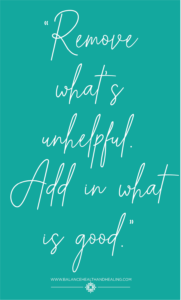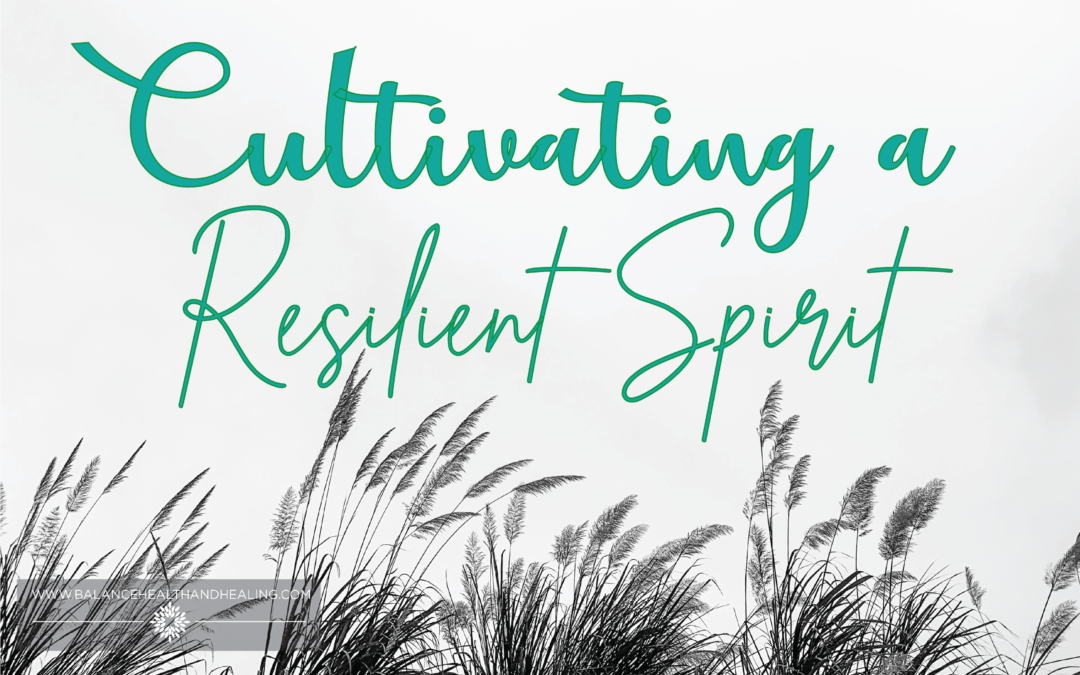Welcome back for another segment in “Cultivating a Resilient Spirit”. You can catch up on our introduction HERE and part one HERE. This month, we are going to be digging into how we experience distress, why it matters, and how to increase our coping through distress tolerance skills.
But first, let me backup a minute. I want to talk to you about the word “cultivate”. In its essence, cultivate means “to change”. We cultivate our gardens, we cultivate good taste, and we can also cultivate our own resilience. As someone who loves gardening as well as helping people live a life at peace with themselves- I LOVE the word cultivate! When we talk about cultivating soil in gardening, we mean that we are changing the soil and what it is capable of. Weak and rocky soils can become fertile and possible of incredible growth through some simple cultivation techniques. We dig in. We remove rocks and other things that might be unhelpful. We add in what is good, amending our soil with rich compost or fertilizers that will provide a supportive framework for the health and growth of what we are planning on planting. Remembering these steps can help us when we think about cultivating goodness in our own lives- dig in. Remove what’s unhelpful. Add in what is good. 
This month’s skill involves removing what is unhelpful (ways we make hard situations harder on ourselves) and adding in what is good (distress tolerance skills!). Let’s dig in!
Removing what is unhelpful: When we make bad situations worse
You may know people who seem to take hard times in stride, while others seem to fall apart at the slightest hint of things not going their way. I like to make the comparison of our experience of distress to “plates”- some people can handle large, platter sized plates, where many things fit on the plate all at once. Others have very small, tea saucer sized plates, and one thing on the plate takes up all of the space. When we think about our own ability to handle distress, do you see your plate as being large or small- or somewhere in between?
People with large “plates” have the skill of being aware of their own emotional worlds, even when those worlds are uncomfortable places to inhabit. They exhibit some acceptance that life isn’t always comfortable, peaceful, and happy. While some may have been taught to ignore emotions in fear of being labeled “emotional”, others accept that emotions are a part of being human and can embrace the messiness emotion can sometimes bring.
This may not be news to some of us, but we can actually take a bad situation and make it far worse by the way we handle it! By ignoring the valuable information to be found in inhabiting our own emotional worlds, we push away an asset to our own growth. When something distressing happens, like getting in a disagreement with a spouse, failing to meet a deadline at work, or facing an 8th week of quarantine- we experience emotions. That emotional world is there whether we are paying attention to it or not- we may feel the need to cry, scream, or hide under the covers without even being able to articulate why.
 This is when the skill of inhabiting our own emotional worlds can be developed! Leaning into the discomfort of our emotional reactions can be invaluable, even if it’s completely counterintuitive. Get curious about what you are experiencing, asking yourself- what is going on here? Can I identify an emotion I’m feeling? What am I doing with that feeling? What have I done with it in the past? Was that reaction helpful or unhelpful? What have I learned about myself while feeling ____?
This is when the skill of inhabiting our own emotional worlds can be developed! Leaning into the discomfort of our emotional reactions can be invaluable, even if it’s completely counterintuitive. Get curious about what you are experiencing, asking yourself- what is going on here? Can I identify an emotion I’m feeling? What am I doing with that feeling? What have I done with it in the past? Was that reaction helpful or unhelpful? What have I learned about myself while feeling ____?
As you engage in the practice of inhabiting your own emotional world, you can begin to notice some of your own unhelpful behaviors that shrink your “plate”. Do you tend to fire off at the mouth when running late and feeling stress? Do you observe that times of sadness lead to procrastination and missed deadlines? Does any interaction with your mother in law make you snap at your children later? By getting curious about your own emotional world, you can make valuable connections about your own strengths, triggers, and limitations. Awareness of these things will help you make better decisions in the future.
As Brene Brown puts it, “Resilience is more available to people curious about their own line of thinking and behaving”. Bottom line: ignoring your emotions is doing you more harm than good.
Weed out that unhelpful way of thinking!
Adding in what is good: distress tolerance skills
Distress tolerance skills are behavioral responses to stress that improve coping. Experimentation is needed to see what is the most helpful, but some ideas to start are:
- get moving- a walk, yoga, or any form of movement you enjoy.
- serve someone in need, or do a random act of kindness
- self soothe through your senses: light a candle you love, dim the lights, play music you enjoy, eat something good.
- pray, meditate, memorize something, read- activate your mind to think about something other than what is distressing you.
Cultivate Resilience
Remember that just as you wouldn’t plant a seed one day and expect to see the harvest the next day- these skills take time, patience, and tending to cultivate. But do dig in and expect to see the benefits!

